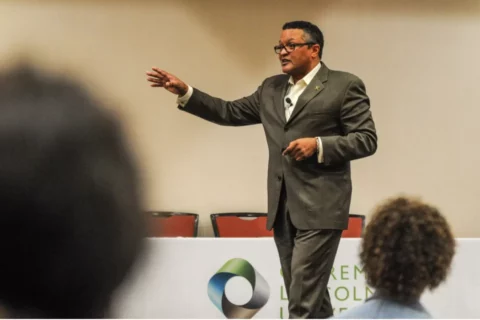WASHINGTON – As federal spending in the D.C. region has decreased in recent years, the local job market has under-performed and has failed to make up for the losses, according to a George Mason economic report released on Wednesday.
“We’re creating the wrong kinds of jobs to grow this economy the way we are used to it growing,” said Stephen Fuller, an economist at George Mason University who studies the D.C. area.
The region has added more than 131,000 new jobs in the last two years, the best two-year performance since 2004-2005 when the region added 135,000. However, Fuller says that is misleading because the jobs are mainly local service positions like retail, food services and health services, not jobs aimed at consumers in national and global markets.
“These are fine jobs. But they’re not the jobs you build an economy on,” Fuller said.
“We’re not generating the kinds of jobs we need to drive the economy the way it used to be driven when we relied on increases in federal spending.”
The D.C. area has historically depended on spending by the federal government for economic growth, and that has led to a slowdown in recent years as policies aimed at reducing the size of the federal work force have been put in place.
Federal spending in the region reached its all-time high in 2010 when it totaled more than $170 billion.
Spending reductions, known as sequestration, occurred over the course of 2013 and 2014, but other reductions can be traced back to 2011. From 2010 to 2013, federal spending decreased and the federal workforce lost 17,800 jobs.
“We’re down roughly $15 billion in federal spending in the Washington area since 2010,” Fuller said.
That loss coupled with the under-performing job market, according to Fuller, is causing the region’s economy to grow at an annual rate of about 1.8 percent. Fuller said it has the potential to “easily” grow at 2.6 percent.
“Over the next nine years, that adds up to $178 billion of foregone earnings,” he said. “If this path continues, there’s going to be an enormous cost to the economy.”








